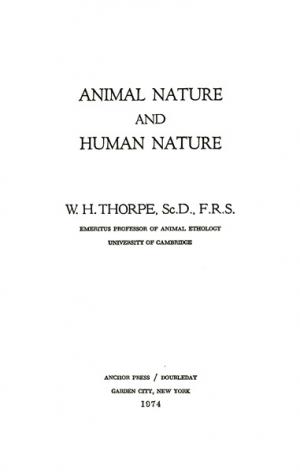W. H. Thorpe’s Gifford Lectures repeatedly consider the question of what, given our current understanding of science, makes humanity different from the other animals. Many beautiful and detailed accounts of what we know of animal behaviour, and what we may infer from that data, are deployed to demonstrate that we simply have to reject most of the older theories. Animals do use tools and language, and the songs of birds approach something genuinely aesthetic.
Thorpe gives many reasons for rejecting reductionist or mechanical conceptions of natural science. What set humans apart from the animals is a very particular form of self-consciousness. Higher animals have consciousness, but not self-consciousness. Both these properties must be seen, in evolutionary terms, as emergent: their appearance at a certain point in the evolutionary process was simply unpredictable.
This self-consciousness may be defined as ‘religion’. The challenge for an adequate conception of religion today is to relate the ancient wisdom to the new facts discovered by science.



